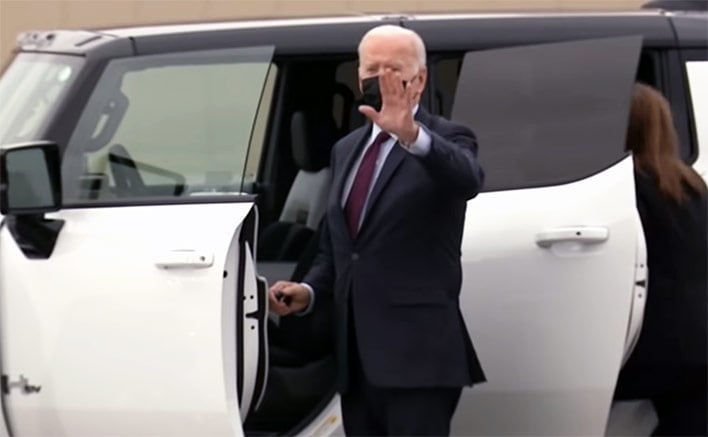Buried In Biden's Infrastructure Bill Is A Mandatory Backdoor Kill Switch For Your Car
One of the most concerning things we've heard so far is the revelation that this "infrastructure" bill includes a measure mandating vehicle backdoor kill-switches in every car by 2026. The clause is intended to increase vehicle safety by "passively monitoring the performance of a driver of a motor vehicle to accurately identify whether that driver may be impaired," and if that sentence doesn't make your hair stand on end, you're not thinking about the implications.
Let us spell it out for you: by 2026, vehicles sold in the US will be required to automatically and silently record various metrics of driver performance, and then make a decision, absent any human oversight, whether the owner will be allowed to use their own vehicle. Even worse, the measure goes on to require that the system be "open" to remote access by "authorized" third parties at any time.
The passage in the bill was unearthed by former Georgia Representative Bob Barr, writing over at the Daily Caller. Barr notes correctly that this is a privacy disaster in the making. Not only does it make every vehicle a potential tattletale (possibly reporting minor traffic infractions, like slight speeding or forgetting your seat-belt, to authorities or insurance companies), but tracking that data also makes it possible for bad actors to retrieve it.

More pressing than the privacy concerns, though, are the safety issues. Including an automatic kill switch of this sort in a machine with internet access presents the obvious scenario that a malicious agent could disable your vehicle remotely with no warning. Outside that possible-but-admittedly-unlikely idea, there are all kinds of other reasons that someone might need to drive or use their vehicle while "impaired", such as in the case of emergency, or while injured.
Even if the remote access part of the mandate doesn't come to pass, the measure is still astonishingly short-sighted. As Barr says, "the choice as to whether a vehicle can or cannot be driven ... will rest in the hands of an algorithm over which the car's owner or driver have neither knowledge or control." Barr, a lawyer himself, points out that there are legal issues with this whole concept, too. He anticipates challenges to the measure on both 5th Amendment (right to not self-incriminate) and 6th Amendment (right to face one's accuser) grounds. He also goes on to comment on the vagueness of the legislation. What exactly is "impaired driving"? Every state and many municipalities have differing definitions of "driving while intoxicated."


